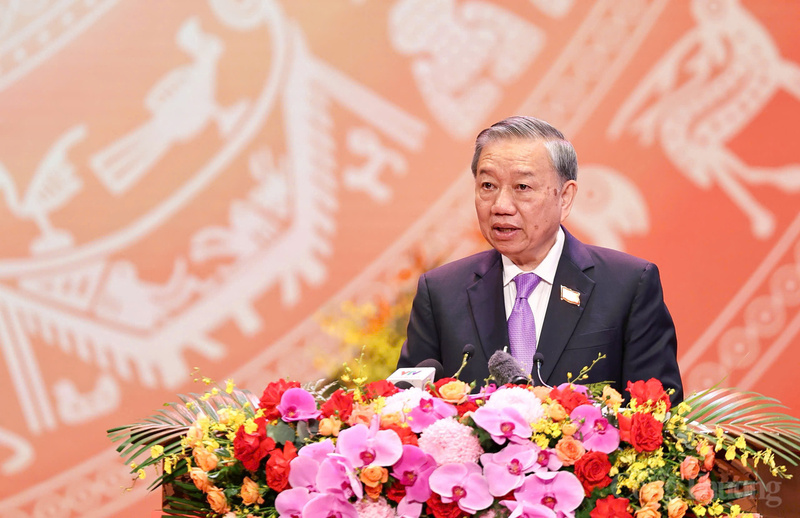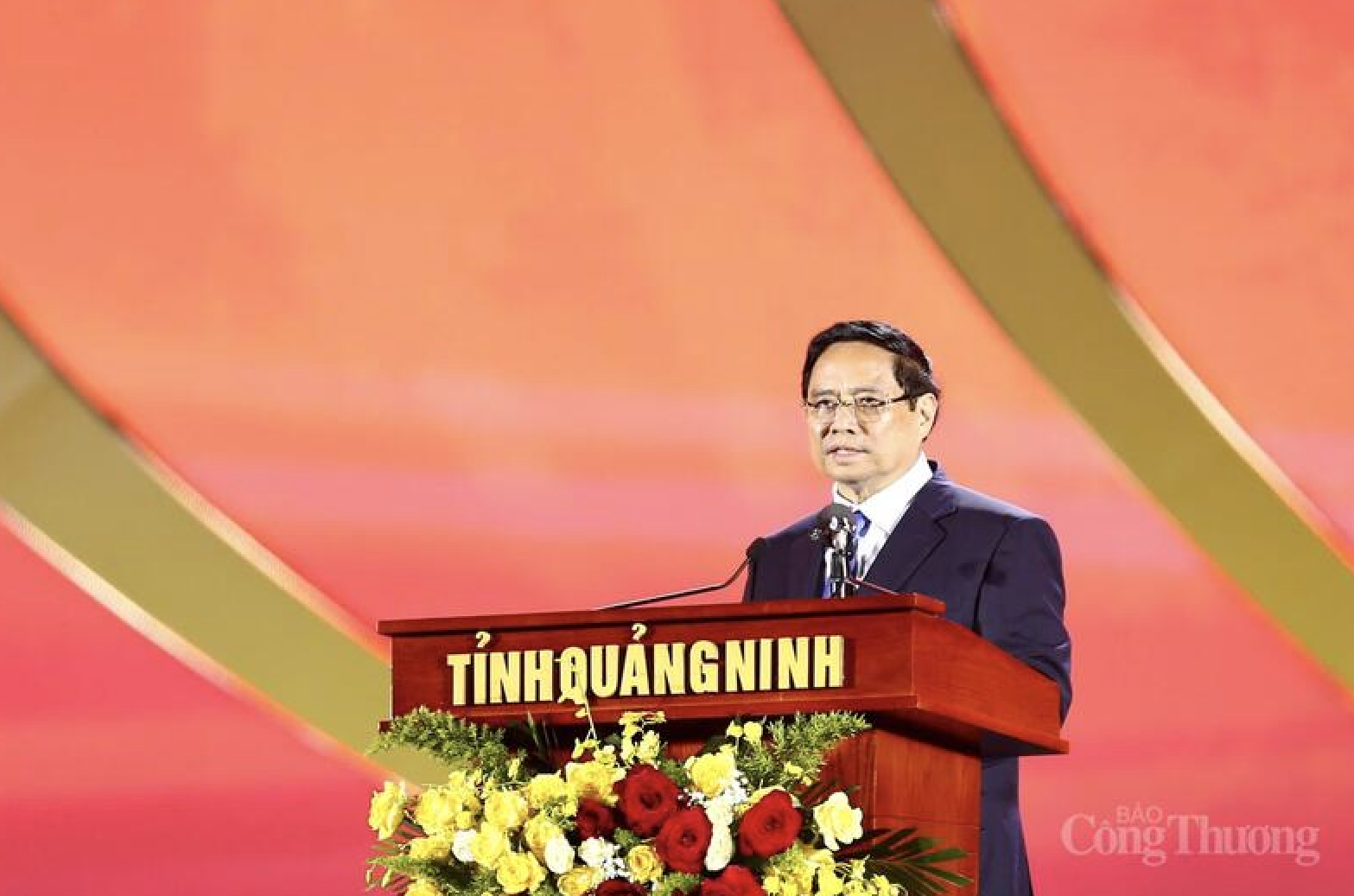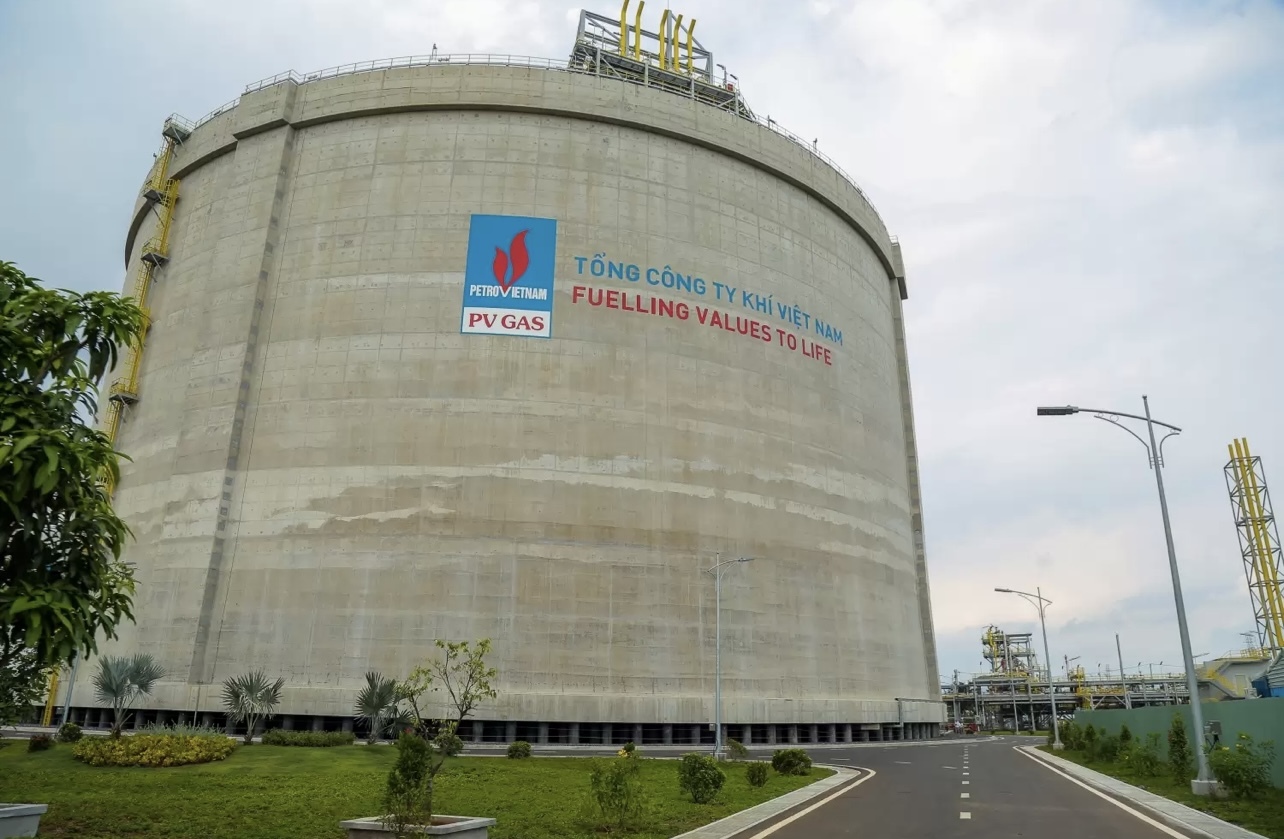
Vietnam’s leaders attend ceremony marking 80th anniversary of government
19:05 | 23/03/2025 17:07 | 20/08/2025News and Events
The press conference was chaired by Deputy Head of the Office of the President Pham Thanh Ha. Also attending the press conference were Deputy Minister of Industry and Trade Truong Thanh Hoai; Deputy Minister of Finance Le Tan Can; Deputy Minister of Home Affairs Nguyen Manh Khuong; Deputy Minister of Culture, Sports and Tourism Ta Quang Dong; and Deputy Minister of Education and Training Pham Ngoc Thuong.

The Law on Economical and Efficient Use of Energy to Take Effect in 2026.
Deputy Head of the Office of the President Pham Thanh Ha announced that the nine laws include: the Law on Teachers; the Law on Employment; the Law on Special Consumption Tax; the Law Amending and Supplementing a Number of Articles of the Law on Advertising; the Law on Chemicals; the Law on Management and Investment of State Capital in Enterprises; the Law on Corporate Income Tax; the Law Amending and Supplementing a Number of Articles of the Law on Economical and Efficient Use of Energy; and the Law on State Budget.
Promoting economical and efficient use of energy
Presenting the main contents of the Law Amending and Supplementing a Number of Articles of the Law on Economical and Efficient Use of Energy, Deputy Minister of Industry and Trade Truong Thanh Hoai stated that the Law on Economical and Efficient Use of Energy No. 50/2010/QH12 came into effect on January 1, 2011.
After 15 years of implementation, several shortcomings have emerged that need to be reviewed and amended for the following reasons:
First, the international context has undergone many changes, creating major challenges such as the carbon emissions trading system (ETS) and the carbon border adjustment mechanism (CBAM) to be applied by the European Union. These mechanisms will put pressure on Vietnam’s export market, reducing the competitiveness of Vietnamese goods and enterprises, especially in Vietnam's key industrial export products such as textiles, footwear, plastics, steel, electricity, electronics, and processed seafood.
Second, Vietnam has committed to achieving net-zero emissions by 2050. Currently, Vietnamese manufacturing enterprises lack financial support mechanisms to comply with green regulations.
Regarding the purpose and viewpoints of the law, Deputy Minister of Industry and Trade Truong Thanh Hoai stated: First, to fully and effectively institutionalize the Party and State’s guidelines and policies on the economical and efficient use of energy. Second, to enhance the competitiveness of Vietnamese enterprises in response to green regulations from Europe (Green Deal) such as carbon emission taxes and the carbon border adjustment mechanism on exported goods and services to markets in Europe, the United States, Japan, and others, through financial support tools and preferential mechanisms for enterprises investing in projects on the economical and efficient use of energy to meet export market requirements; and to promote the development and expansion of the energy consulting services sector. Third, to actively and positively contribute to the implementation of commitments made under the 26th United Nations Framework Convention on Climate Change (COP26).
Developing the chemical industry
Regarding the Law on Chemicals, Deputy Minister of Industry and Trade Truong Thanh Hoai stated that the revised Law on Chemicals is being developed to promptly and comprehensively institutionalize the Party’s policies on the development of the chemical industry.
At the same time, the law comprehensively and synchronously revises the provisions of the current Law on Chemicals to ensure the continuation of provisions that are “mature, clear, widely supported, and proven effective in practice”; eliminate provisions that are no longer appropriate or that cause obstacles; and supplement and develop foundational, principle-based provisions appropriate to the new context, with a focus on decentralization, delegation of authority, administrative reform, and selective adoption of international experience.
Six of the laws will take effect on January 1, 2026. These include: the Law on Teachers; the Law on Chemicals; the Law Amending and Supplementing a Number of Articles of the Law on Advertising; the Law Amending and Supplementing a Number of Articles of the Law on Economical and Efficient Use of Energy; the Law on Special Consumption Tax; and the Law on Employment.
The remaining laws will take effect as follows: the Law on State Budget will take effect from the 2026 budget year, except as provided in Clause 3 of this Article; the Law on Management and Investment of State Capital in Enterprises will take effect on August 1, 2025; the Law on Corporate Income Tax will take effect on October 1, 2025 and be applied from the 2025 corporate income tax period.
Six laws will take effect on January 1, 2026, including the Law on Teachers, the Law on Chemicals, the Law Amending and Supplementing a Number of Articles of the Law on Advertising, the Law Amending and Supplementing a Number of Articles of the Law on Economical and Efficient Use of Energy, the Law on Special Consumption Tax, and the Law on Employment.
The remaining laws will take effect as follows: the Law on State Budget from the 2026 budget year, except as specified in Clause 3 of this Article; the Law on Management and Investment of State Capital in Enterprises from August 1, 2025; and the Law on Corporate Income Tax from October 1, 2025, applying to the 2025 corporate income tax period.

19:05 | 23/03/2025 17:07 | 20/08/2025News and Events

19:05 | 23/03/2025 11:20 | 18/08/2025News and Events

19:05 | 23/03/2025 21:36 | 17/08/2025News and Events

19:05 | 23/03/2025 15:55 | 17/08/2025Industry

19:05 | 23/03/2025 15:20 | 17/08/2025Society